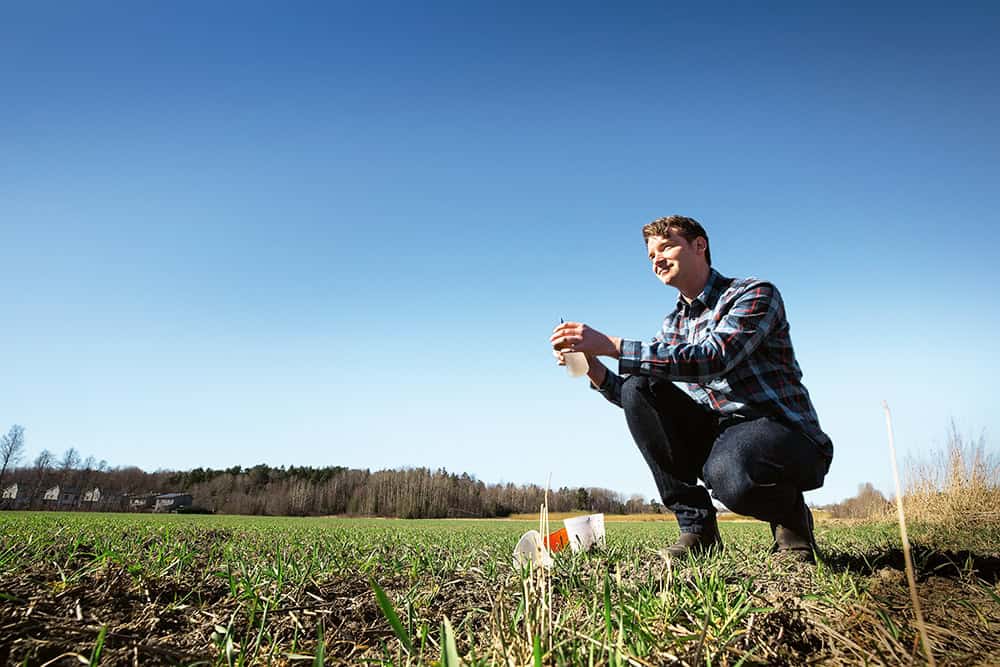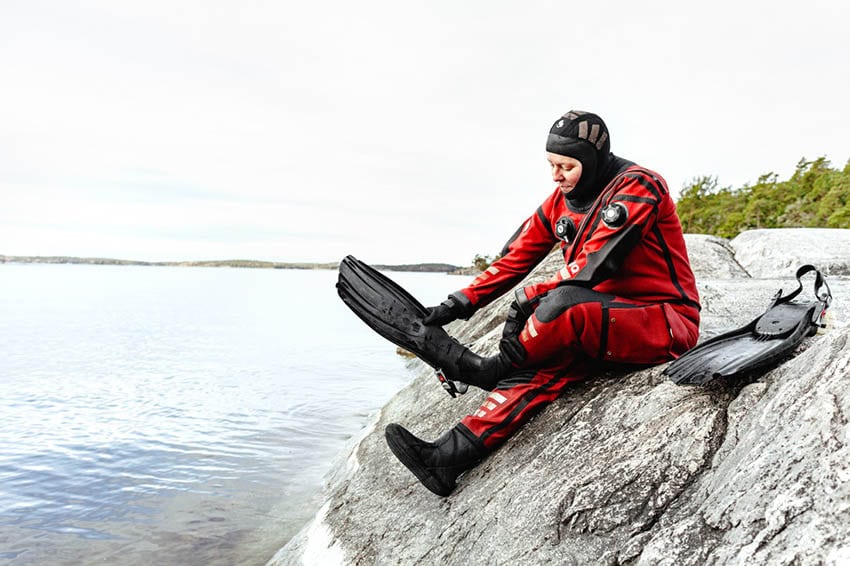Each year, around 3,000 doctoral candidates start a PhD programme. Exciting and interesting for most, of course, but a doctoral programme can also be the perfect breeding ground for stress. What many experience at the start, that feeling that you are standing in the middle of a tangle of ambitions, project plans and “to-dos”, is perhaps the easiest part to deal with. At least in practical terms.
“It’s all about planning, prioritising and accepting,” says Maria Nordin, docent in psychology at Umeå University.

Researches relationships
Among other things, she researches the relationships between stress, sleep problems and mental health, as well as different ways to treat the problems.
For a new doctoral candidate, it is important to find a reasonable level of ambition, realise that you cannot do ”everything” and may even have to skip certain studies. In short: accept that your thesis does not have to be Nobel Prize standard.
“It can be very difficult, because many in people in higher education are very ambitious. There is a clash between what you want and what time allows. It can be incredibly stressful.”
Supervisors are always important of course, but perhaps especially at the beginning. Their role at that stage is to help prepare the doctoral candidate and to provide structure and concrete advice about everything that lies ahead. If it feels like the interaction isn’t working, Maria Nordin thinks that the doctoral candidate should change supervisors without delay. “There’s no reason to carry on in a relationship that’s not working, because you have so little time.”
Unexpected tragedy
Lena Kroik completed her doctorate at the Department of Nursing at Umeå University last year. The first couple of years of her programme went quite well. She had got started on her compilation thesis and was enjoying life as a doctoral candidate. Then tragedy struck. Her main supervisor passed away unexpectedly.
“It caused both great sadness and a huge amount of stress,” says Kroik. “What do you do if your supervisor dies? You can’t find that in any doctoral candidate handbook.”
Half a year vanished as if in a vacuum. Once she was given a new supervisor, time passed quickly. The last six months before her thesis defence were almost unbearable.
“I had two articles that weren’t finished, so I had to write them at the same time as the introductory chapter of my compilation thesis. I had just one day off in four months.
Stress before thesis defence
Her thesis summary seminar a little over a month before the thesis defence was when the increasing stress culminated. This was where she would summarise four years of studies and receive feedback from others who had read everything she had produced with new perspectives.
“It was horrible. I was so worried that it would lead to huge changes, which I certainly wouldn’t have time for before the deadline. I also got some extremely hard and critical questions. So it was tough.”
The stress had already begun to make itself known, for example in the form of recurrent palpitations. “That’s a warning sign. It’s actually dangerous,” says Kroik.
As a trained nurse, she realised that something had to be done. She started working out, but ironically, she soon felt that she didn’t have time, so she stopped.
What saved her was a scholarship that involved a stay at a health resort. There, in ”fantastic surroundings” outside Sollefteå, she was given an office, as well as lunch and dinner each day. Before that, she had sometimes barely had time to cook.
Nature as medicine
Effective medicine for her stress was also spending time outside in nature, having a massage and spending time with one of her sons’ dogs. Her family was a great support, she believes, and she also had support discussions with other doctoral candidates. “That was good, because it helped me realise that I was not the only one.”
Lena Kroik’s stress relievers are similar to the strategies that Maria Nordin suggests. Physical activity in any form is good, as is talking to relatives and colleagues, if only to relieve the pressure. Meditation can also help.
Trying to see yourself and your feelings from the outside is never wrong. The next step is to ask yourself what you can do to feel better. “That might be singing in the shower, talking to a friend or going out for a run to shake off a load of stress hormones. You can always come up with something,“ says Nordin.
Academia’s primal monster
When the biggest source of stress is approaching, the actual thesis defence itself, academia’s primal monster, it is important to try to remain calm. You can remind yourself that stress starts in the brain. With a thought. Something you can consciously try to change.
“If you can see your thesis defence as a challenge rather than as a threat, that makes a big difference. A threat is something you want to flee from. A challenge is something you can approach, and afterwards feel great satisfaction when you have come through it.”
Both Nordin and Kroik are critical of an academic culture where your thesis defence is regarded as the biggest thing you will face, something huge and dangerous. “I think that the culture at the workplace and within the research group could instead help alleviate the stress,” says Nordin. “Having a good group of people around you and a supportive department can be a great help.”
She completed her PhD in 2006. Shortly afterwards, she broke two teeth in her sleep. What caused the tension was the worry about getting a job, financial uncertainty and wondering if there was a role for her in academia.
Went up in smoke
So how did their thesis defences go? Yes, the monsters went up in smoke, for both, and were transformed into scientific dialogues that they describe as interesting, exciting and inspiring. “After about a quarter of an hour, I realised that the external reviewer was not going to kill me,” says Lena Kroik. “After that it was just fun.”
Her thesis, Sami and the End of Life: Knowledge of Traditions to Develop Future Care, is now a closed chapter, even though some of the stress still remains, more than a year after her thesis defence. “It’s taken a long time to recover. I’m not back to 100% yet, but things are much better now.”















